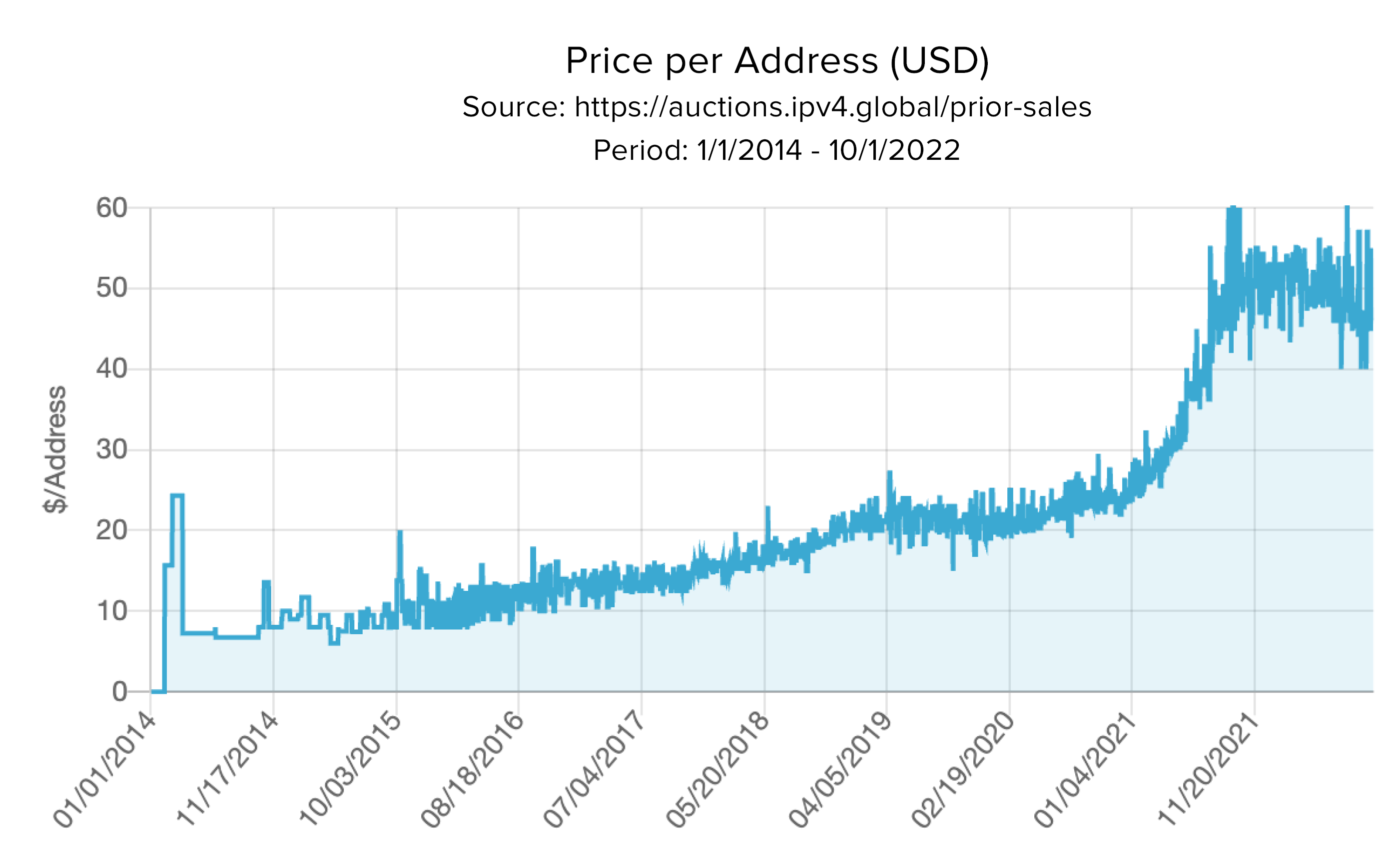Taking Inventory of IPv4 Assets
by IPv4 Staff

There is a general consensus IPv4 exhaustion occurred sometime in 2010. This varied by region, of course. RIPE announced that all IPv4 addresses had been allocated in 2019. This was anticipated and there was already a new format in place in preparation for this moment: IPv6. However, most companies still rely on the IPv4 format since it has been in existence for far longer than IPv6, and is, essentially, the foundational format for the vast majority of connected devices.
This led to a widespread reluctance to switch to the IPv6 format, as a majority of networks relies on the IPv4 infrastructure already in place. IPv6 conversion requires a lot of time, retraining, capital, etc. that many companies are unwilling to accommodate. This led to a rise in IPv4 demand, and thus the rise in its financial value.
Depending on a company’s IPv4 assets, they could be sitting on a valuable asset and lucrative opportunity. Whether there are unused IPv4 addresses from a company merger or an educational institution sitting on freely distributed assets that are now unused, it is important to understand the IPv4 inventory in any organization.
Why is IPv4 Inventory Important?
Other than the financial impact to be made from the sale or lease of available IPv4 address blocks in an IPv4 inventory, there are many reasons why having a thorough understanding of a company’s IPv4 addresses is important, especially as it pertains to IP address management. These include:
- Network Security
- Organization
- Accountability
- Expansion Capabilities
- Streamlined Allocation
The saying “knowledge is power” rings true for why one should aim to have an all-encompassing IPv4 inventory for their institution. It will help bolster security and save precious time when seeking to expand a network with more connected devices. Conducting a thorough IPv4 inventory may also uncover hidden, unused IPv4 address blocks, which can then be used to fulfill any number of purposes, including their sale.
What Can I Do When I Find Hidden IPv4 Addresses?
Depending on a company’s needs, one thing they could do is save them for later use. It helps business owners and employees rest easier knowing these IPv4 addresses are now accounted for and their network enjoys some bolstered security, along with all sorts of benefits like those mentioned above. On the other hand, they could sell them for a potentially large profit.
Companies don’t actually sell IPv4 addresses themselves. Rather, they sell the rights to their exclusive use. Regardless, there are many companies trying to buy IPv4 addresses at their substantially increased current price, e.g. tech giants like Amazon which has been buying large numbers of IPv4 addresses.

Image by IPv4GLOBAL
Looking at the above price chart, the leap in financial value IPv4 prices have experienced is all too obvious. Recently, the price hovers around the $50 mark per address, depending on the size of the IPv4 address block an entity is considering buying or selling. In many cases, this price level values holdings in the hundreds of thousands, millions and even tens of millions of dollars.
How Can I Sell My IPv4 Assets?
Selling the rights to IPv4 addresses is something that has been going on for quite some time. The advent of IPv4 exhaustion gave rise to the IPv4 marketplace and the idea of trading IP address ownership, and to facilitate this process IPv4 brokers were created.
Registered IPv4 brokers are trustworthy entities that act as a mediator between buyers and sellers of IPv4 addresses. They can save a lot of time and legal headache through playing this role, since companies had to find each other through more cumbersome processes and draw up their own contracts before IP address brokers came into existence.
To learn about IPv4 address inventory, or about buying, selling, and leasing IPv4 address blocks, visit IPv4GLOBAL for more information.